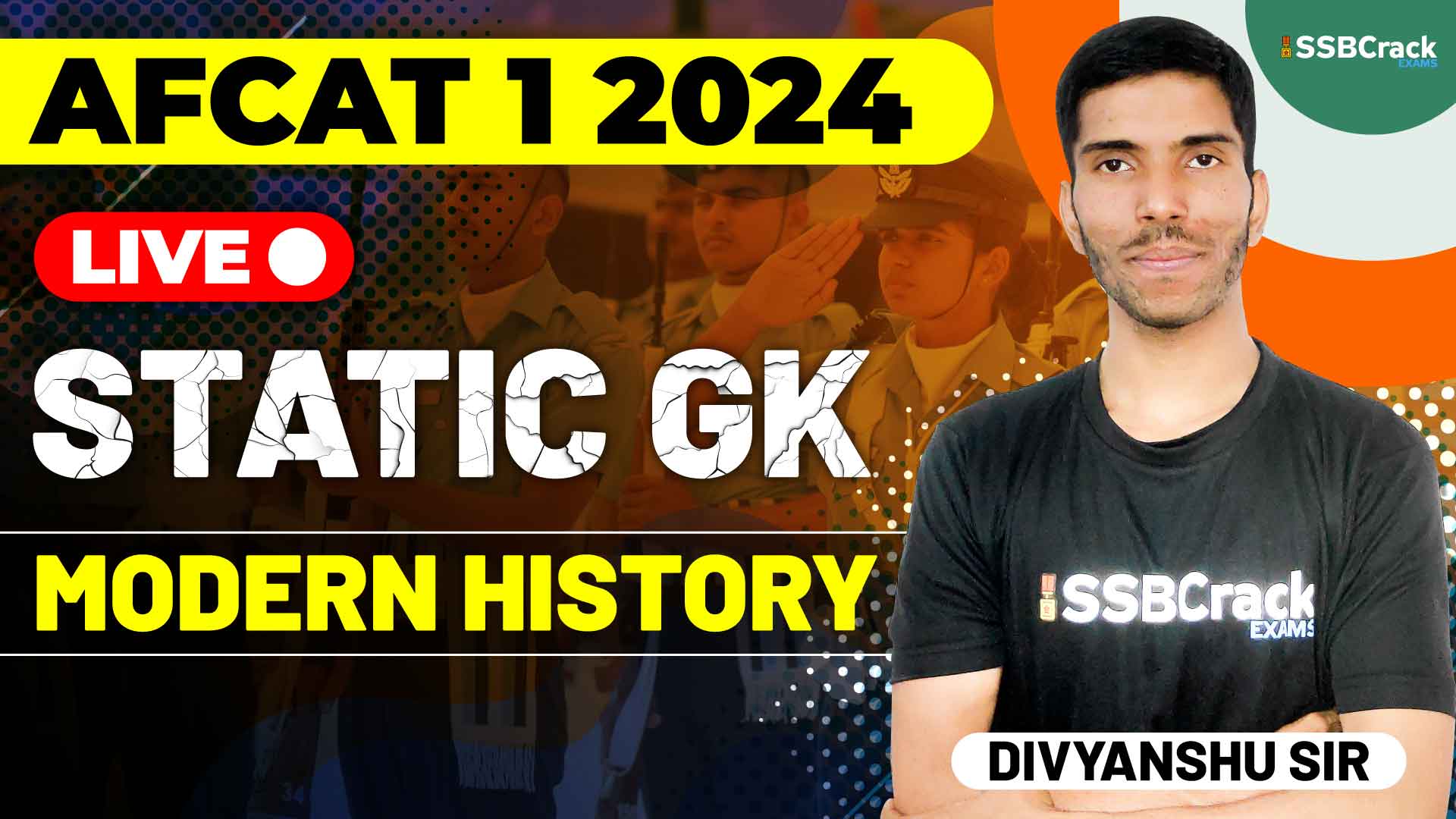The Indian National Movement stands as a testament to the resilience, unity, and determination of a nation striving for independence from colonial rule. Its intricacies, milestones, and the profound impact it had on shaping modern India make it an essential topic for aspirants preparing for the AFCAT 2024 exam. In this article, we delve into the key aspects, personalities, and events that defined this historic movement, offering a comprehensive guide to aid aspiring candidates in their preparation.
AFCAT 1 2024 Exam Static GK – Modern History
Understanding the Context: To comprehend the Indian National Movement fully, aspirants must grasp the socio-political, economic, and cultural landscape of colonial India. The British Raj imposed oppressive policies, economic exploitation, and cultural hegemony, igniting discontent among the Indian populace. The seeds of resistance were sown through the efforts of early reformers, intellectuals, and socio-religious movements like the Arya Samaj and the Brahmo Samaj, laying the foundation for future agitation against British rule.
Key Personalities and Organizations: The Indian National Movement was spearheaded by visionary leaders whose unwavering commitment and strategic prowess galvanized the masses. Mahatma Gandhi emerged as the epitome of nonviolent resistance, advocating for Satyagraha (truth-force) and Ahimsa (nonviolence) as potent weapons against oppression. Other prominent figures such as Jawaharlal Nehru, Subhas Chandra Bose, Sardar Vallabhbhai Patel, and Bhagat Singh played pivotal roles in mobilizing public sentiment and challenging colonial authority.
The movement also witnessed the formation of influential organizations like the Indian National Congress (INC), which served as a platform for political discourse and collective action. The INC evolved over time, from its moderate phase under leaders like Dadabhai Naoroji and Gopal Krishna Gokhale to a more radical stance advocated by figures like Bal Gangadhar Tilak and Lala Lajpat Rai.
Milestones and Turning Points: Several watershed moments punctuated the trajectory of the Indian National Movement, each leaving an indelible mark on the struggle for independence. The Non-Cooperation Movement of 1920-1922, led by Gandhi, saw widespread participation across India, marking the first mass-based agitation against British rule. The Civil Disobedience Movement of 1930, symbolized by the Salt March, further intensified the resistance and propelled India onto the international stage.
The Quit India Movement of 1942, characterized by the iconic slogan “Do or Die,” demonstrated the unwavering resolve of Indians to free themselves from colonial bondage, despite facing severe repression from the British authorities. Simultaneously, the contributions of revolutionaries like Subhas Chandra Bose, who formed the Indian National Army (INA) to combat British forces, added a militant dimension to the freedom struggle.
Legacy and Impact: The culmination of relentless struggle and sacrifices bore fruit on August 15, 1947, when India finally attained independence from British rule. The Indian National Movement not only secured political freedom but also laid the groundwork for democratic governance, social justice, and inclusive development in independent India. Its principles of nonviolence, secularism, and pluralism continue to inspire movements for justice and equality worldwide.
Conclusion: The Indian National Movement remains a source of inspiration and a testament to the power of collective action in the face of adversity. For AFCAT 2024 aspirants, a comprehensive understanding of this historic movement is essential not only for exam preparation but also for cultivating a deeper appreciation of India’s rich heritage and the values it espouses. By unraveling the tapestry of the Indian National Movement, aspirants can glean invaluable insights into leadership, resilience, and the quest for freedom that continue to resonate in the annals of history.








